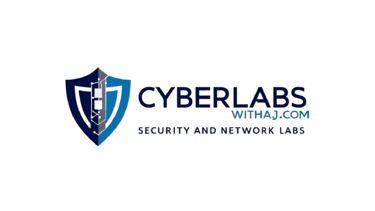Cybersecurity Tools Every One Should Learn in 2025
In today’s fast-paced digital world, cybersecurity is no longer just a career choice — it’s a survival skill. Whether you're a student stepping into IT, preparing for certifications like CEH or CompTIA Security+, or just curious about ethical hacking, the right tools can fast-track your learning. Good news? You don't need to spend a single penny to get started.
BOLGS


Introduction to Cybersecurity
In today’s fast-paced digital world, cybersecurity is no longer just a career choice; it’s a survival skill. Understanding how to protect yourself and your assets online is essential for everyone, especially as we move further into 2025. Whether you’re a student preparing for certifications, such as CEH or CompTIA Security+, or simply curious about ethical hacking, knowing the right tools can significantly enhance your learning experience. Fortunately, there are numerous valuable resources that won’t cost you a dime.
1. Wireshark – Your First Step into Packet Analysis
Wireshark is an acclaimed open-source packet analyzer that serves as an excellent introduction to network analysis for beginners. It allows users to capture real-time data packets from their network connection and analyze them for potential security vulnerabilities. With Wireshark, you can observe communication patterns and understand how hackers might exploit weaknesses. Its comprehensive user interface and extensive documentation provide invaluable support for new users.
2. Metasploit Community – The Essential Penetration Testing Framework
Metasploit Community is an open-source platform that helps security professionals and beginners alike penetrate networks and systems to find vulnerabilities. It offers a wide array of exploits, payloads, and auxiliary modules that are crucial for anyone interested in ethical hacking. This tool not only enhances your skills but also equips you with the practical experience needed for real-world applications. The learning resources available within the platform can help users understand the underlying concepts of penetration testing.
3. Nmap – Network Mapping and Security Auditing Tool
Nmap, or Network Mapper, is another essential tool that every beginner should get familiar with. This free utility enables users to discover devices on a network, scan for open ports, and identify vulnerabilities. The information gathered by Nmap is crucial for assessing the security posture of devices on your network and developing strong defensive measures. Users will find its command-line interface and extensive community-driven documentation particularly helpful in learning the ropes of network security.
4. OpenVAS – Advanced Vulnerability Scanning
OpenVAS is a powerful vulnerability scanning tool that focuses on identifying security issues within systems and applications. Its extensive testing capabilities allow beginners to pinpoint weaknesses in their configurations. Learning how to use OpenVAS provides insight into the broader field of vulnerability management, making it an indispensable resource as you advance in your cybersecurity education. The user-friendly interface and detailed reporting feature make it easy for novices to track and remediate vulnerabilities.
5. Snort – The Intrusion Detection System
Last but certainly not least, Snort is an open-source Intrusion Detection System (IDS) that is widely recognized in the cybersecurity community. It analyzes traffic passing through a network to detect harmful activities and potential threats. Gaining proficiency in Snort not only aids in building a robust security posture but also enriches your knowledge of network security operations. Its active community allows users to keep abreast of the latest updates and innovations in cybersecurity.
Conclusion
Embarking on a journey to learn cybersecurity in 2025 doesn’t have to come with a hefty price tag. These five free tools—Wireshark, Metasploit Community, Nmap, OpenVAS, and Snort—provide beginners with the practical foundation they need to build a successful career in this critical field. By immersing yourself in these tools, you will gain practical knowledge that can lead to a deeper understanding of cybersecurity principles and practices.
